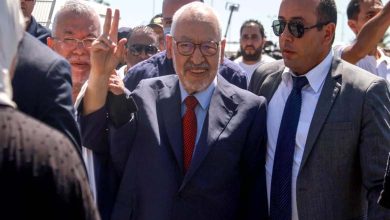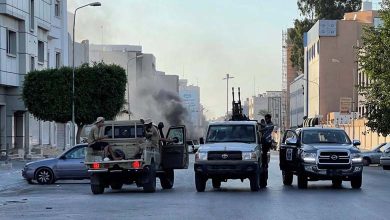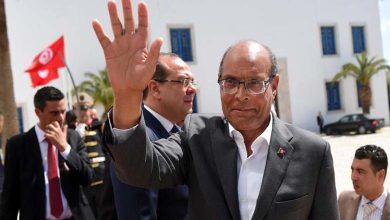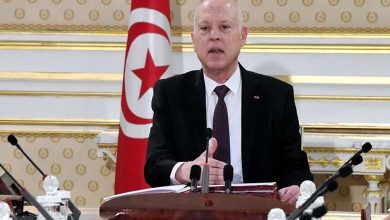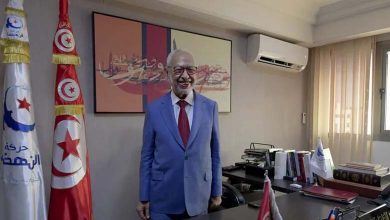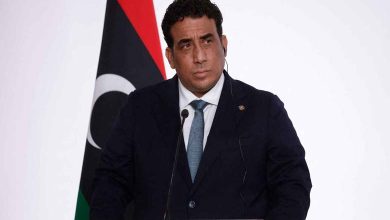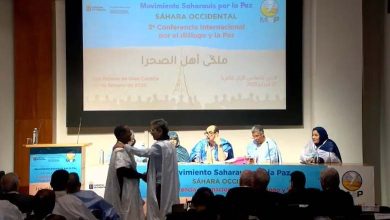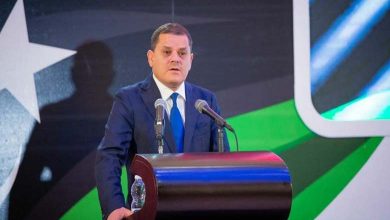Clashes Between Militias in Tripoli Mar Eid Atmosphere
Clashes between fighters from the Stability Support Apparatus and others affiliated with the Deterrence Apparatus erupted on the airport road
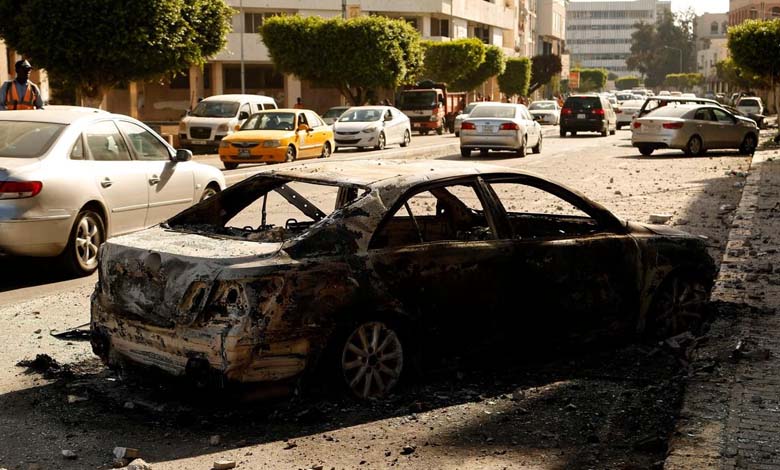
The Libyan capital, Tripoli, witnessed fierce clashes between several militias on the second day of Eid Thursday amid growing fears of the country slipping back into violence.
The “Libyan Middle Gate” newspaper quoted eyewitnesses hearing gunfire in areas along the airport road and Madaar Island, near the extension of Jaraba Street, known in the capital Tripoli. According to the same information, the fighting broke out between elements affiliated with the “Stability Support Apparatus,” led by Abdulghani Al-Kikli, and others affiliated with the “Judicial” group under the “Deterrence Apparatus,” without specifying the reasons.
Media circulated footage showing residents fleeing after going out for a stroll on the second day of Eid, while the ambulance and emergency department urged all citizens to exercise caution and stay away from tense areas, and not to leave their homes except for absolute necessity to ensure their safety.
These developments come amid a state of tension, especially after events at the Ras Jedir border crossing and the targeting of the residence of interim Prime Minister Abdul Hamid Dbeibeh with rocket shells.
Despite some recent movements, including through meetings held between members of the Supreme Council of State and Parliament to form a government, as well as Abdoullay Bathily and the Arab League, there has been no major change, and the situation remains as it is.
Libyans believe that the rejection by forces in western Libya, led by Prime Minister of the National Unity Government, of laws issued by Parliament under the pretext of the need to amend them and then hold elections, is an attempt to continue in power and cling to positions without prioritizing the national interest and the suffering of the people, who are suffering from the influence and dominance of militias and facing an unprecedented spread of corruption in state institutions.
This deadlock prompted Bathily to say during his meeting with the mayor and elders of the Tarhouna municipality last week “that political leaders clinging to chairs refuse to break the political deadlock and refuse to find solutions because they benefit from this crisis.” He called on Libyan leaders to learn from history to avoid repeating its dark chapters, calling for reaching a political agreement through political dialogue and away from the logic of violence and threats.
Observers believe that the escalation of violence is due to the increasing influence of militias and foreign forces that do not wish to unify Libyan institutions and move beyond the current phase of weakness and division.
The targeting of Abdul Hamid Dbeibeh’s residence with rocket shells hours after his decision to appoint the commander of Brigade 444, Mahmoud Hamza, as the new director of military intelligence, is an example of what could happen in the near future in terms of security tension and violence.
This development reflects the rejection of some decisions made by Dbeibah by a group of militias, who face criticism and calls to bypass his government and form a new unity government in preparation for elections.
Similarly, tensions and clashes between militias at the Ras Jedir border crossing for control of smuggling routes are another example of concerns about Libya’s future and the possibility of its return to violence at any moment.
Observers emphasize that the continued presence of armed militias is the biggest obstacle to overcoming the current situation, as the leaders of these armed groups will exert every effort to prevent disarmament or the elimination of their weapons according to any agreement. And the different political forces in Libya possess armed groups to protect their interests, while Dbeibeh uses these militias to stay in power for as long as possible.



